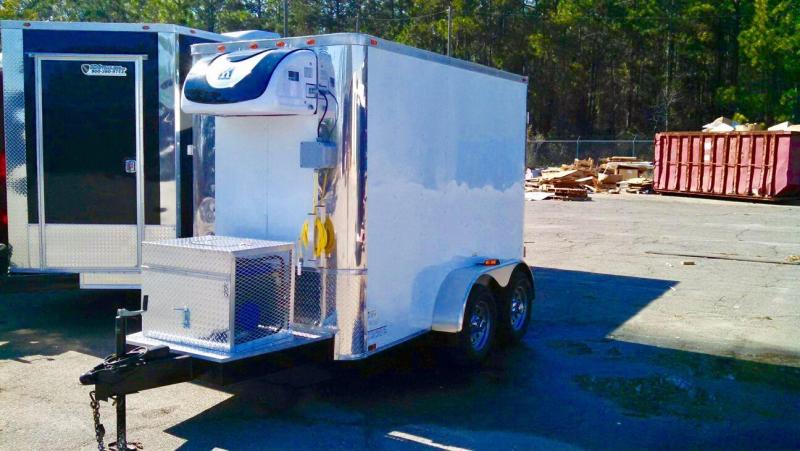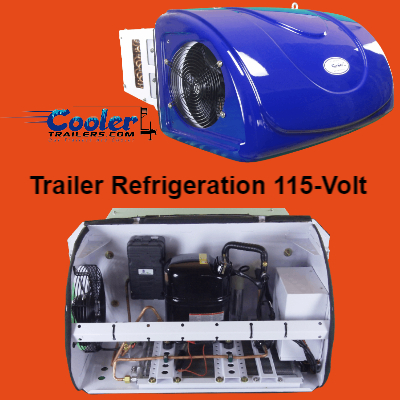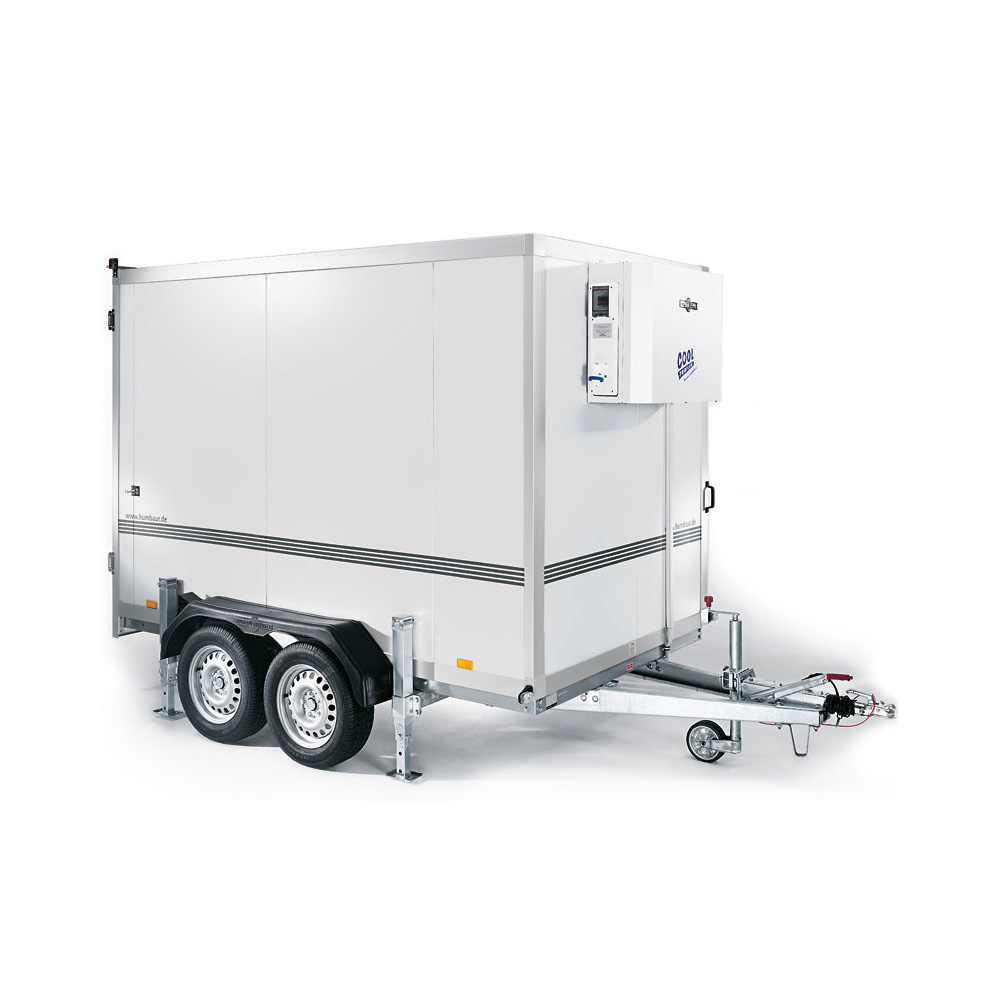Chill on the move: Trailer Refrigeration Solutions for Mobile Air Conditioning Needs
Chill on the move: Trailer Refrigeration Solutions for Mobile Air Conditioning Needs
Blog Article
Taking Full Advantage Of Performance: Just How to Select the most effective Trailers Refrigeration
When it comes to selecting the most ideal refrigeration system for trailers, the value of making best use of efficiency can not be overemphasized. In a market flooded with choices, browsing the nuances of choosing the best refrigeration solution needs a nuanced approach that takes into consideration numerous aspects.
Energy Performance Factors To Consider
When assessing trailers refrigeration systems, prioritizing energy efficiency is vital for optimizing functional costs and reducing ecological influence. Energy-efficient refrigeration systems can cause substantial price financial savings gradually, making them a smart financial investment for businesses wanting to enhance their profits. By selecting trailers with high power efficiency ratings, companies can minimize their carbon footprint and contribute to a much more lasting future.

Regular maintenance and maintenance are also necessary to make sure that trailers refrigeration systems operate at peak performance levels. Simple jobs like cleaning coils, examining cooling agent levels, and evaluating door seals can aid protect against power waste and prolong the lifespan of the tools. Inevitably, prioritizing energy performance in trailers refrigeration systems is a tactical choice that can generate long-term benefits for both companies and the setting.
Cooling Capability Evaluation
To make sure optimal efficiency of trailers refrigeration systems, an essential facet to review is the cooling ability, which directly affects operational effectiveness and temperature level maintenance. Cooling capability describes the capacity of the refrigeration system to get rid of warm from the trailer effectively. When evaluating cooling capacity, aspects such as the dimension of the refrigerated area, the wanted temperature level range, insulation top quality, and the type of freight being delivered should be considered. It is important to choose a refrigeration unit with a cooling capability that matches the details requirements of the cargo being delivered to keep the desired temperature constantly.
An accurate assessment of cooling capability helps stop concerns such as temperature level fluctuations, irregular cooling, or not enough air conditioning, which can compromise the high quality and security of disposable items. Furthermore, choosing a refrigeration device with the appropriate air conditioning capacity can result in energy cost savings by ensuring that the system runs effectively without unnecessary pressure. Routine maintenance and surveillance of the cooling ability are essential to make certain that the refrigeration system functions efficiently and fulfills the needs of the transport procedure.

Maintenance and Service Requirements
Making sure regular maintenance and service adherence is critical for making the most of the longevity and effectiveness of trailers refrigeration systems. Routine upkeep helps identify and attend to possible issues prior to they rise, lowering the risk of costly malfunctions and making sure undisturbed procedure. It is recommended to develop a detailed upkeep routine that consists of tasks such as evaluating insulation, examining for leakages, cleansing condenser coils, and confirming temperature level setups.
Along with routine maintenance, prompt servicing in case of any his response breakdowns is important to prevent further damage and keep optimal performance. Involving qualified professionals for repair services and servicing makes sure that the refrigeration system is taken care of properly and successfully. Maintaining comprehensive you could look here documents of upkeep and solution background can aid in tracking the system's efficiency in time and determining any kind of recurring problems that might require unique attention.

Cost-Effectiveness Analysis
Consistently evaluating the cost-effectiveness of trailers refrigeration systems is necessary for enhancing functional costs and total performance. When performing a cost-effectiveness evaluation, it is critical to take into consideration not just the ahead of time financial investment needed for the refrigeration system however likewise the long-lasting costs connected with maintenance, energy consumption, and prospective downtime (trailer refrigeration). Comparing various versions and brand names based upon their initial expense, power performance scores, and maintenance needs can offer useful insights right into which system offers the most effective value for your details demands
Additionally, determining the overall expense of possession over the anticipated life expectancy of the refrigeration device can help identify one of the most cost-efficient choice in the lengthy run. Variables such as energy effectiveness, reliability, and simplicity of servicing ought to all be considered when examining the overall cost-effectiveness of a trailers refrigeration system.
Tailored Solutions for Organization Needs
When maximizing functional costs and performance in trailers refrigeration systems, customizing services to satisfy certain business needs ends up being extremely important. trailer refrigeration. Each company has special needs based on the nature of its operations, the sorts of items being moved, and the distances traveled. To guarantee the refrigeration system works optimally, it is important to take into consideration factors such as the required temperature level array, insulation demands, moved here power performance, and maintenance frequency
Tailored solutions can include picking the appropriate refrigeration system size to match the trailer dimensions, picking in between electrical or diesel-powered systems based upon usage patterns, and integrating telematics for real-time monitoring. For services that regularly transport temperature-sensitive items over lengthy ranges, spending in dual-zone refrigeration systems or multi-temperature systems might be useful. Additionally, personalizing the control setups to straighten with certain temperature level demands and executing remote monitoring capabilities can boost functional control and effectiveness.
Conclusion
In conclusion, when picking a refrigeration trailer, it is essential to focus on energy efficiency, cooling down ability, maintenance requirements, and cost-effectiveness. Customizing the selection to satisfy particular company needs can bring about enhanced performance and lowered operating prices. By meticulously considering these factors, companies can make the most of efficiency and ensure that their refrigeration needs are satisfied successfully.
When evaluating trailers refrigeration systems, prioritizing energy performance is critical for maximizing functional costs and reducing environmental impact. Inevitably, focusing on energy efficiency in trailers refrigeration systems is a tactical decision that can produce long-lasting benefits for both companies and the atmosphere.
To make certain ideal efficiency of trailers refrigeration systems, a vital facet to assess is the cooling capacity, which straight impacts functional efficiency and temperature level maintenance (trailer refrigeration).Ensuring routine maintenance and solution adherence is essential for taking full advantage of the long life and performance of trailers refrigeration systems. To guarantee the refrigeration system operates efficiently, it is important to consider variables such as the needed temperature level range, insulation demands, energy efficiency, and maintenance frequency
Report this page